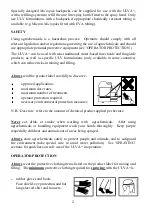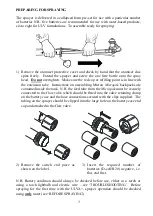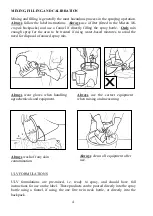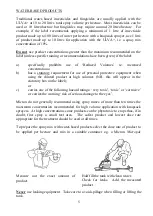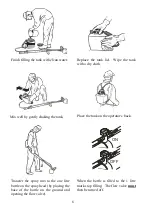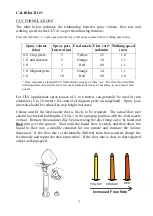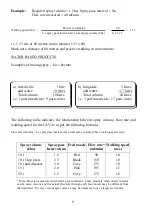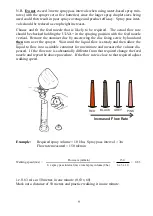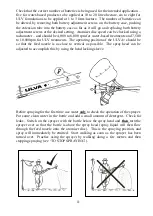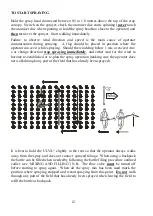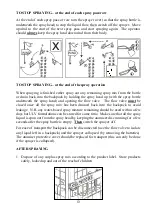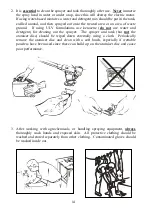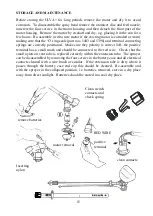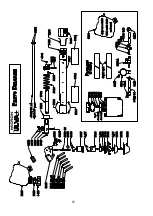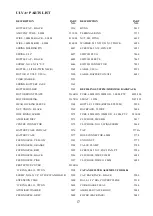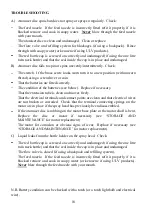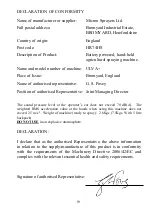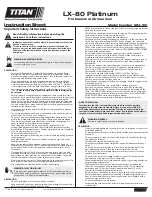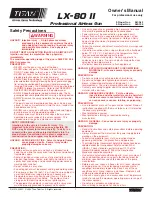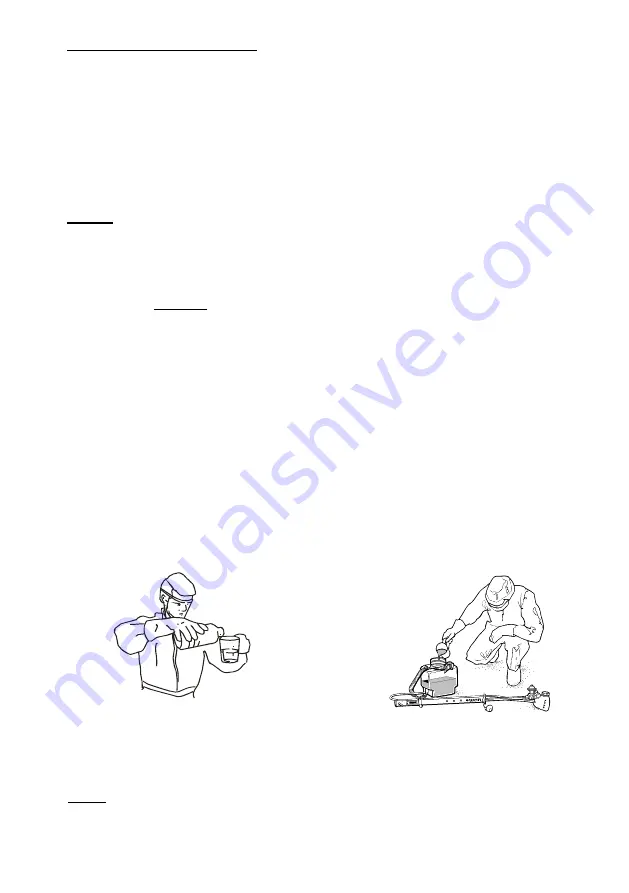
5
WATER-BASED PRODUCTS
Traditional water-based insecticides and fungicides are usually applied with the
ULVA+ at 10 to 20 litres total spray volume per hectare. Most insecticides can be
used at 10 litres/hectare but fungicides may require around 20 litres/hectare. For
example, if the label recommends applying a minimum of 1 litre of insecticide
product made up to 100 litres of water per hectare with a knapsack sprayer, use 1 litre
of product made up to 10 litres for application with the ULVA+, i.e. a spray mix
concentration of 10%.
Do not
use product concentrations greater than the maximum recommended on the
label (unless specific training or recommendations have been given) if the label:
a)
specifically prohibits use of ‘Reduced Volumes’ i.e. increased
concentrations;
b)
has a statutory requirement for use of personal protective equipment when
using the diluted product at high volumes (N.B. this will appear in the
statutory box on the label);
or
c)
carries one of the following hazard ratings: ‘very toxic’, ‘toxic’ or ‘corrosive’
or carries the warning ‘risk of serious damage to the eyes’.
Micron do not generally recommend using spray mixes of more than ten times the
maximum concentration recommended for high volume application with knapsack
sprayers. At high concentrations some products can be phytotoxic to crops thus, if in
doubt, first spray a small test area. The safest product and lowest dose rate
appropriate for the treatment should be used at all times.
To prepare the spray mix with water-based products select the dose rate of product to
be applied per hectare and mix in a suitable container e.g. a Micron
Micropak
Measure out the exact amount of
product.
Half fill the tank with clean water.
Check for leaks. Add the measured
product.
Never
use leaking equipment. Take care to avoid spillage when filling or lifting the
tank.




